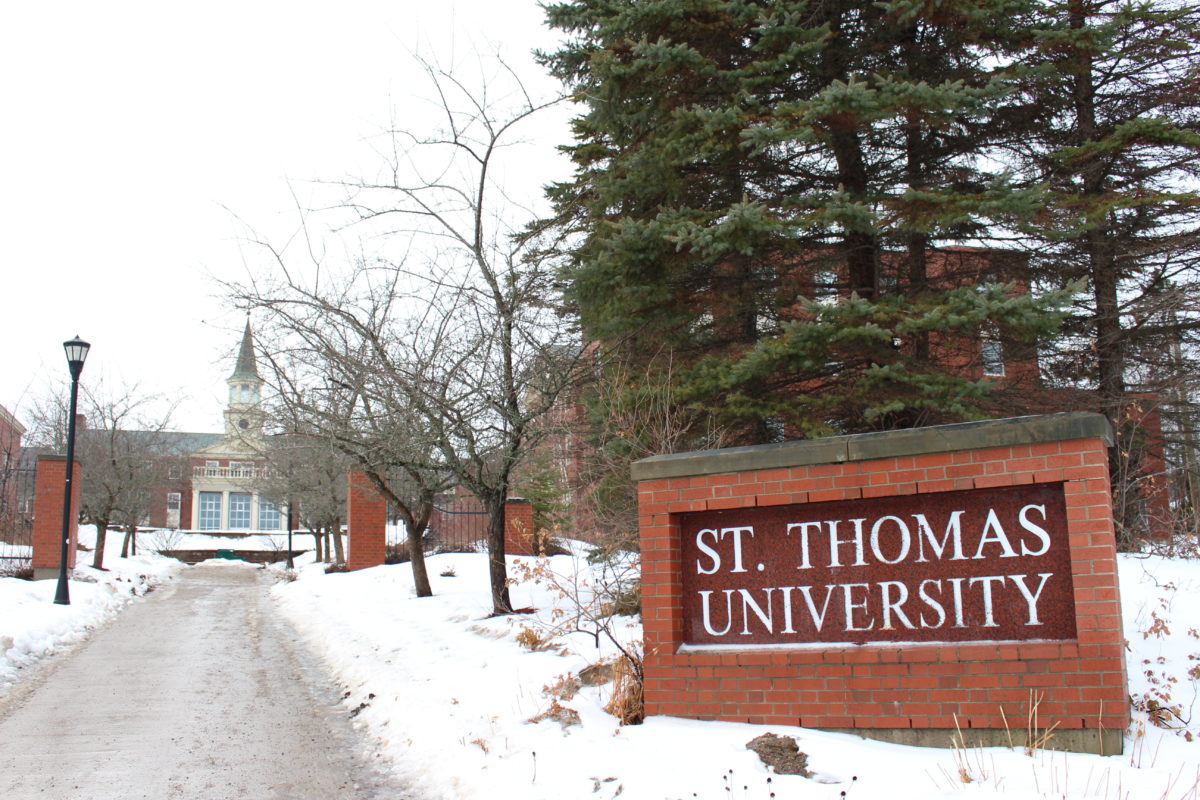St. Thomas University is the only publicly-funded university in the province that has not signed a memorandum of understanding (MOU) on tuition and funding with the Government of New Brunswick.
The University of New Brunswick, Mount Allison University and Université de Moncton have signed the agreement for 2018-19 to 2020-21. The agreement means the universities will receive an annual one per cent increase in operational funding from the government for the fi rst three years followed by a two per cent increase in 2020- 21. It also means there will be a two per cent tuition cap for New Brunswick students enrolled in a program in 2018-19 for the duration of their degree.
In a press release on Jan. 25, the administration stated STU’s annual operating grant is $1.4-million lower than it should be on an annual basis.
President Dawn Russell called the current funding framework unfair.
“We want to be treated fairly,” Russell said in an interview with The Aquinian.
“We’ve had to be very frugal as a university in managing our budget because of the inequity in our grant … We’ve had to make cuts, like the men’s hockey team. There’s no doubt that was something that was driven by the need to make responsible and financially sustainable decisions.”
In addition to cuts, inequity in funding can lead to tuition hikes, as the university seeks to supplement the loss in funding elsewhere.
The government currently gives $230-million to universities. STU receives $14.1-million in funding, $1.9-million of which goes directly to shared services with UNB. UNB receives the most funding from the government at $110-million, UdeM receives just over $64-million and Mount A, similar in size to STU, receives more than $20.3-million. Russell said the difference in funding between Mount A and STU equates to more than $2,000 per student.
“It’s time for the inequity to be addressed,” Russell said. STU receives the lowest operating grant funding at 89 per cent of the provincial average. Russell said that is an “indication of how bad the funding was — has been — for some time.”
The funding has not been adjusted, despite an increasing number of programs offered at STU over the past 40 years. Russell “can’t imagine why” STU receives less funding.
“How can the government justify paying basically $2,100 less for our operating grant for students, given the number of students from New Brunswick we educate, the high proportion of first generation students, low-income students and our leadership in terms of educating Indigenous students in this province?” asked Russell.
St. Thomas University’s Students’ Union released a statement in support of the university’s decision to not sign the agreement.
“As the STUSU is tasked with representing the interests of all St. Thomas students, we join the university in support of the decision not to sign the MOU due to the impacts that this inequity in public funding has had, and continues to have, on St. Thomas students,” the statement said.
STUSU vice-president education Brianna Workman described the inequity in funding as “really disheartening” in an interview on Jan. 26.
“I thoroughly believe in the quality of education I’m getting at St. Thomas,” Workman said.
“I came from Ontario specifically to go to STU and I’ve never regretted it for a moment since, so it is really disheartening to see that through the scope of public funding my education is inherently worth less and that’s just disappointing.”
Russell and the board of governors would like to see permanent enhancements to the operating grant addressed over a couple of years.
STU will be meeting with the deputy minister of post-secondary education this week. They have also requested a meeting with Premier Brian Gallant.

